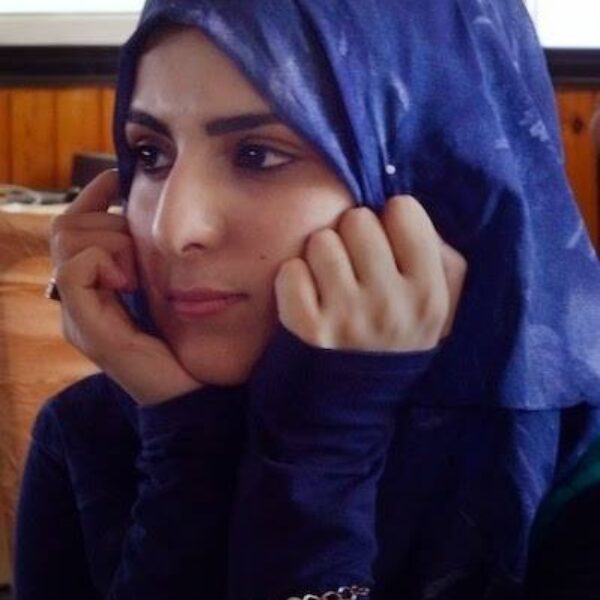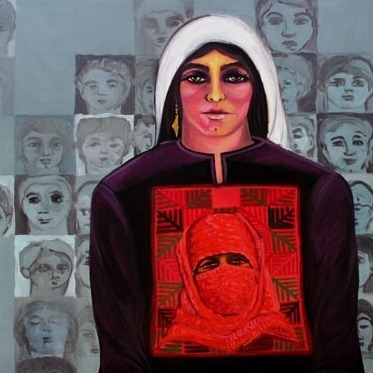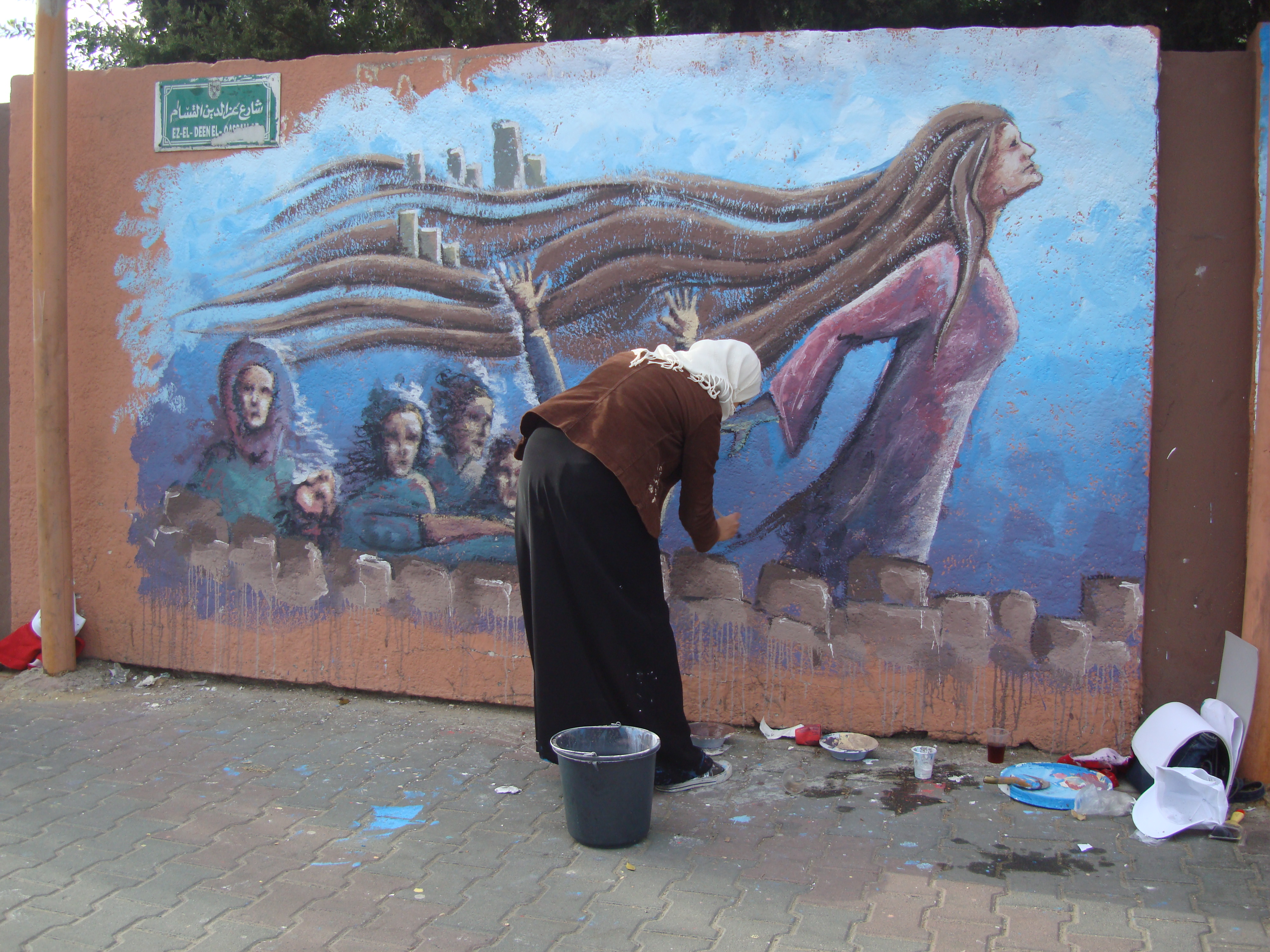
If you don’t make challenges a part of your life, you have done nothing. This is my motto.
But this was a new challenge unlike any I had yet experienced.
Usually, I write about myself, about my feelings, dreams and goals. I write about Maisoon and I am the heroine. But now I have found a new heroine, a special person in my life, my close friend, the one I fight yet can't leave. She is my mother, my Mum. Her love and advice make me the strong girl I am, determined to fulfill my dreams. But now she needed me.
The beginning
At 5 p.m. that Monday, someone knocked on the door of my home. I asked who was there, and an unknown person replied, "There is a woman lying outside, wearing a black abayaa (long dress). There has been an accident."
Unconsciously, my mind started repeating the man’s words. "A woman lying outside? Black dress?" NO! My younger sister Zana heard me and started shouting, "OH, NO! MUM! Where is my mum?!" I ran out of the house. I didn’t care about the cars as I ran to the road and I didn’t listen to the people shouting. The only thing in my mind was to see this woman lying in the street to find out if she is my mother. I wished desperately that it was not my mum.
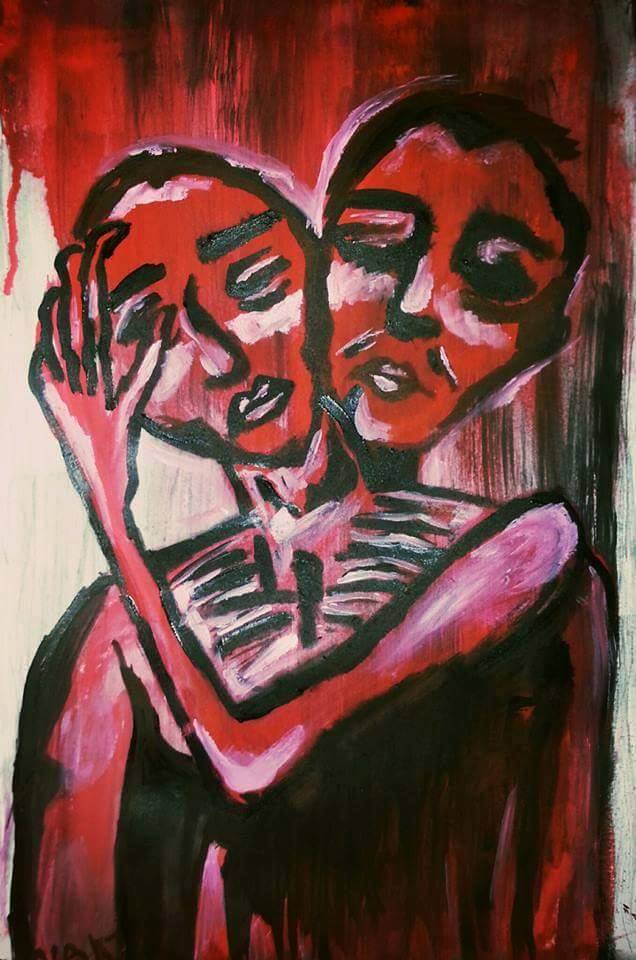
But it was. She had been waiting for a taxi, I learned, and a car turned onto our street and hit her. The driver didn’t stop (he was caught later), so some bystanders called for an ambulance. "Nooo, Mum. Why? Why?” I moaned. I could not breathe; I felt as if a part of me was dying. Images of my dad, who died nine years ago, appeared in front of my eyes.
The area around Mum was covered in blood. I asked a neighbor to take Zana home and stay with her; she was scared to stay alone. I was deply shaken as well. I’ve always wanted to be like Mum because she is such a strong woman. Nothing broke her. But now she was.
Medical attendants arrived and took Mum to the hospital. She kept praying to Allah and asking where the rest of the family was; she wanted to see them. I put my hand on her face and said, "Stop, Mum; you will be fine and come back home. Stay strong, please!"
When we arrived at the hospital, I struggled to answer the doctors’ questions as carefully as possible. But I wanted to shout, "Please stop! This is not a good time to talk!" I tried to control my tears. I held onto Mum’s hand; she never stopped pleading for help. It nearly killed me when my mother said, "Maisoon, your mother is dying! Please help me."
The doctors took Mum to get x-rays while she was still screaming in pain. There was nothing I could do to help her. I tried to ignore her screams, to control myself and listen to what the doctors were saying. At this moment, my twin brother Mohammed, a graduate student, arrived. Mohammed is a special person to me, not just because he is my twin, but also because he is a copy of Dad, who I miss a lot. But now he looked scared and lost.
When my mother saw Mohammed, she hugged him, crying, "Where were you? I am dying." Mohammed was in shock; I know how much he loves Mum. Mohammed even decided to stay in Gaza with Mum, instead of studying with my other brother in Germany.
The results of the x-rays came in, showing the very serious state of my mother. Her pelvis was severely fractured, along with her right leg. One of her hips was dislocated as well. Nervous, Mohammed sent the x-rays to my other brother, Yazid, who is an orthopedic surgeon in Germany.
Fortunately, Yazied was attending a doctors' conference at the time, and was able to ask many physicians for their advice. He worried that the shock of our mother’s injury would affect his judgement. Mohammed thinks well under stress, and naturally assumed the role of liaison between Yazid and the doctors in Gaza. Mum needed to be moved to another hospital for surgery, because the local one was weak. Yazid wanted to bring her to Germany, but he knew it was too dangerous to move her that far.
Meanwhile, my mother insisted I return home because she was very worried about Zana, who is just 19. I obeyed, although I didn’t want to leave Mum, ever.
Move to Al-Quds Hospital
I returned home to a mood of silence and shock. It was midnight, but Zana was awake and cried, "Please, Maisoon. Don't be like the others. I know they are not telling me the truth." I started to reassure my sister, saying everything was okay, that it was “just” a fractured leg. But inside I was terrified. Would Mum ever walk again? In Gaza, injuries that are manageable elsewhere can be life-threatening due to the lack of medical equipment and drugs, as well as the frequent power outages.
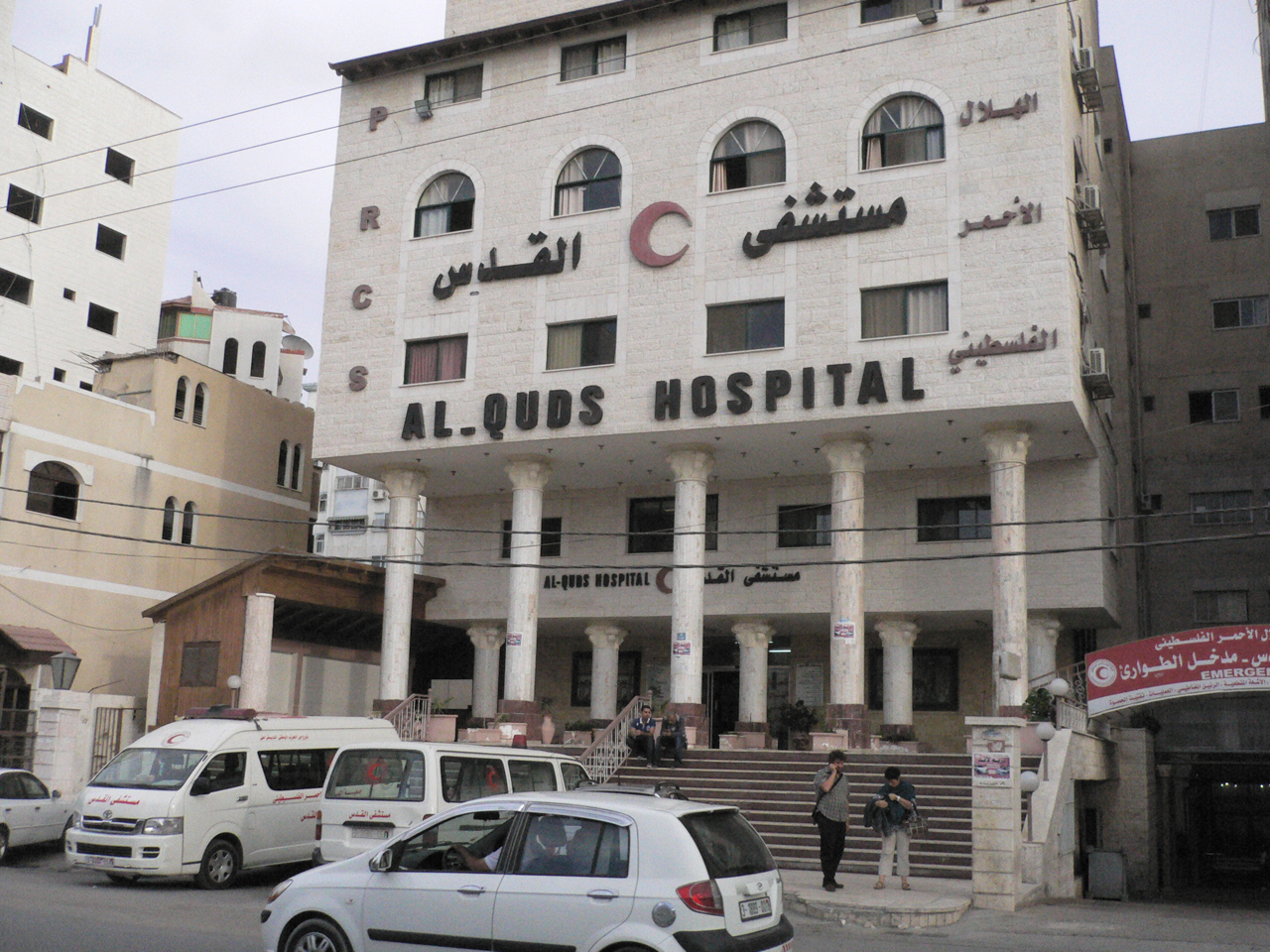
Over the next few days, I assumed the role of mother and housewife who looks after the home and kids. I woke up very early, cleaned the house and prepared food, even though I knew no one had an appetite. I tried to get Mohammed and Zana to eat. I felt compelled to act like a strong girl, stronger than at anytime before—especially since Zana cried every night. “Oh, lovely, stop crying,” I’d say. “I promise you can visit her, but please sleep. You have exams and you have to study. Make this a gift for Mum." With a big hug, I’d turn the light off and leave. Thanks to Allah, Zana slept, hugging a picture of Mum on her phone beside her.
My resolve to be strong was not for me, but for Mum and Dad (may Allah bless his soul), who commanded me to care for my mother when he died. “I will challenge myself until we have passed through this ordeal,” I told myself.”Maisoon, wipe your tears, take a deep breath and be strong."
Meanwhile, Mohammed remained with Mum in the hospital during her surgeries. One of the neighbors came and offered to stay with me while Mohammed was gone. I thanked her because that really meant a lot to me. We started talking and I saw her eyes flutter open and closed. She was sleeping and I was alone. I walked around the home until I arrived at Mum's room. I opened the door unconsciously. My tears began falling. I went to Mum's bed and put my head on her pillow, hugging her sleeping jacket between my hands. I didn't fear the night, but I feared this loneliness.
Suddenly, my phone was ringing. It was 3 a.m. Mohammed was calling: "The doctor has decided to do the operation tomorrow,” he said. “I will come home in a few moments and our aunt will stay with Mum." A few moments later Mohammed came in, with sadness and exhaustion on his face. I asked him if he wanted to eat, but he replied that he just wanted to sleep. My neighbor woke up and went home. Again, I was alone. But the quiet was welcome. Since the accident, the phone in our home had not stopped ringing. Even our mobile phones kept ringing, which stressed me much more.
At 6 a.m., I woke up. I hesitated to wake Mohammed since he had just gone to sleep. But I did because he had to be with Mum now. I prepared breakfast, but Mohammed would only have a cup of tea; he and Zana refused to eat anything. "I want to see Mum.You promised me," Zana said while I prepared a coffee pot for Mohammed to take with him for visitors. My family is known for our generosity and kindness, even in the most difficult circumstances, and this is what makes me proud to be a member. I told my sister, “You will see Mum, I promise. Don’t worry.”
Later, after Zana came home from school and started studying for her exam, my phone rang again. It was Mohammed. "Maisoon, Mum has the first operation tonight at 7 or 8 p.m., ending around midnight. Pray for her." He hung up. My heart started racing and my mind stopped working. I hadn’t really slept or ate for three days.
At 9 p.m., Mum entered the operating room. My neighbor, who had come to be with me again, prayed with me and we waited for someone to call us, but no one did.
Finally, at 1 a.m., Mohammed called to say the operation was complete and the doctor was happy with the results. I started crying, but this time because I was happy. "OH MY GOD. Thanks to Allah! You answered my prayers,” I said to myself.
In the morning I told Mohammed I could no longer remain at home, staying up all night alone and thinking about Mum. I wanted to stay with her until she recovered and came back home.
My new family
Before, I had always said I detested the hospital. I would ask myself how people could recover in a place where there is no freedom. But this time the situation was completely different. On the way to the hospital, questions raced through my mind: What would Mum look like? Is she okay now or does she still need more operations? When will Mum walk again? They exhausted my mind.
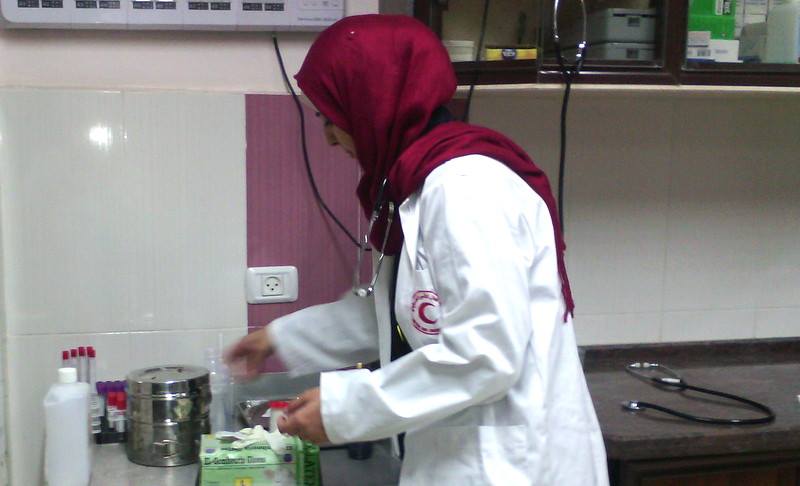
I arrived at the hospital and took the elevator to Mum’s room, to my new “girl child”; the tables were now turned and she needed my care. I knocked on the door, put my bag on the table and gave Mum a big hug. I tried to hide my tears as much as I could. But, a mother is a mother. "Don’t be sad, Maisoon,” she said. “This is my fate and we believe in Allah." "Yes, we do.You are right, Mum," I replied.
I began learning my mother’s medical routine. She had to receive three injections every 12 hours. At the beginning, it scared me, but day after day I became stronger and learned everything as though I was studying medicine. I was astonished at how I adapted to the schedule: 6 a.m. breakfast, 9 a.m. doctor’s visit, 1 p.m. lunch, 6 p.m. injections and tests. I made the hospital my second home, and the doctors and nurses my second family.
On the first night in the hospital, my aunt tried hard to stay instead of me, but I said firmly, "Look, my lovely aunt and everyone else, do not think that because I am still young I can’t take responsibility. This is my mother and I am her daughter. I will never leave her and I will serve her till she recovers." Silence and astonishment fell over the room, with wonder in Mum’s eyes!
At 9 p.m., it was so quiet; I couldn’t hear any voices at all in the hospital. Everyone was sleeping except the nurses and me. I brought out my notebook to write about these moments, trying to kill time while not sleeping all night long. I am a social girl so I like to connect with people and make new friends. While Mum was sleeping under the influence of a sedative, I walked about to meet and talk with the nurses. It does not take long to make new friends. Day by day, I discovered how much I loved them. We talked all through their breaks. We exchanged phone numbers and most of them added me on Facebook. One of the doctors said, "In a few weeks you have learned everything; you know how to deal with your mother even though she is in a very serious state, without being affected by your emotions.You cancel visitors when you feel it is better for your mother and don’t care what they will say. You are like a professional doctor, a leader." These words warmed my heart. I really needed to hear that after a long time under stress.
Every morning, the doctors came to see Mum and drink my coffee. One of the doctors admitted, “I come every day just for your coffee." Mum was amazed at how I became known throughout the hospital, with everyone talking to me as though they had known me a long time.
One of nurses was named Huda, and she particularly loved to spend her breaks with us, asking Mum how to care for her baby after she gave birth. She was pregnant for the first time and so excited. There also was Eman, who was nicknamed “the vampire” because every morning she collected blood samples from patients. That reputation made her sad and she was frightened to talk with patients. But, once I asked her to stay with Mum until I came back and I was surprised to find her chatting away with mom when I returned.
I wanted to try to make this experience as livable and even as pleasant as I could. I believe we can influence our lives so that even from deep suffering, real happiness can emerge.
Leaving the hospital
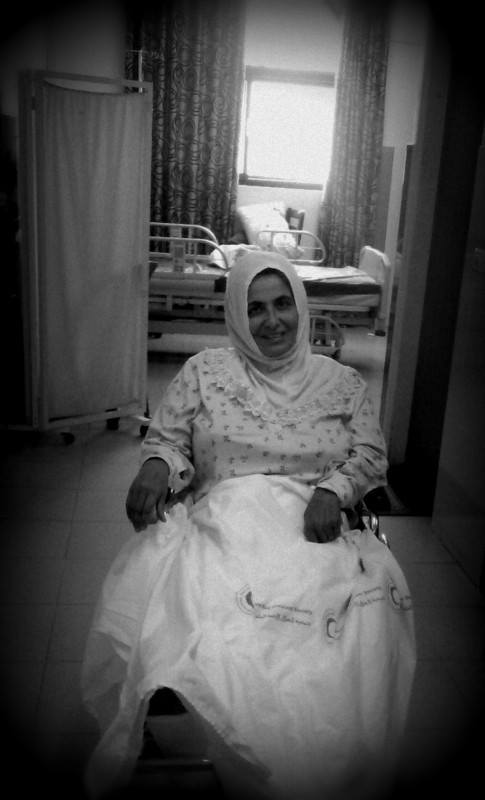
Finally, the doctor decided Mum should start physical therapy. When Mum heard that, she was afraid and I could understand why. For about a month, Mum had not walked or even moved. All night, she’d ask me, "How will I be able to move? Will I be in a lot of pain?"
In the morning at 9, a beautiful lady entered the room, full of energy. She was a physical therapist. Quickly, without a long introduction, she opened the window and started telling Mum what to do. Step by step Mum began to move in bed and take long breaths. I helped move her legs, even when I caused pain. “I am sorry Mum,” I said to myself. “But I want you back as you were; I want you to recover soon. I am causing you pain because I really love you, Mum.”
In total, my mother had three serious operations over more than three weeks. Finally, the doctor decided Mum could leave the hospital and complete treatment at home until she could walk again. I was ecstatic, but sad I would leave my second family. I will never forget these lovely people and our moments together.
Looking back, I realized the experience taught me a lot; today, I am stronger and more patient and have a renewed respect for the power of faith.
Back home!
At home, I was alone, without any medical consultants next to me. It was really a big responsibility and a big challenge, but I was ready!
Mum and I arrived home at 3 p.m. When I entered, I felt something physically move inside me. I had really missed home. It is not just a house; it is where my memories exist. Zana ran to hug Mum hard, bringing tears to my eyes.
I tried to keep to the same routine at home as in the hospital. I slept near Mum in the same room and woke up early, preparing breakfast and administering her treatments, cleaning and cooking like a real housewife. Honestly, though, I discovered that taking responsibility for the home is not as easy as I had assumed. And now, we had visitors all the time.This made me feel exhausted and stressed. But, when I felt depressed I took a deep breath and remembered this was a test I could pass.
When it came time for the first post-surgical assessment, Mum was worried she would never get her cast off. I asked myself too if she would really be able to walk again.We arrived at the hospital and the doctor welcomed us with a warm smile I hoped was a good omen. Everyone left the x-ray room except me, and Mum of course. My heart was beating fast. The doctor ruled she still needed time, but was recovering. I saw Mum was about to cry; she had wanted to be able to start walking so much. "It's okay! Don't worry. After maybe three weeks you will walk," I said. She thought I was lying and I saw sadness in her eyes.
Life is continuing
Six months after the fateful day of the accident, Mum finally has her casts off and has even progressed beyond a wheelchair to a walker. But doctors in Germany have confirmed that lack of proper medical supplies and skills means she will not be able to walk independently unless further corrective surgery can be done overseas.
We are awaiting the day when she can travel, and hopefully me with her. However, we live in the Gaza Strip, where a hermetic blockade has been imposed for 10 years. In the summer of 2014, I lost a full university scholarship abroad because I was not allowed to travel. It will be a battle to get Mum out.
Despite the hardships of life in Gaza, I still dream. If there isn’t a door, I will build one and open it.

